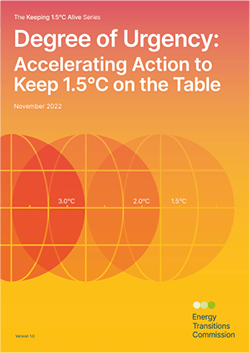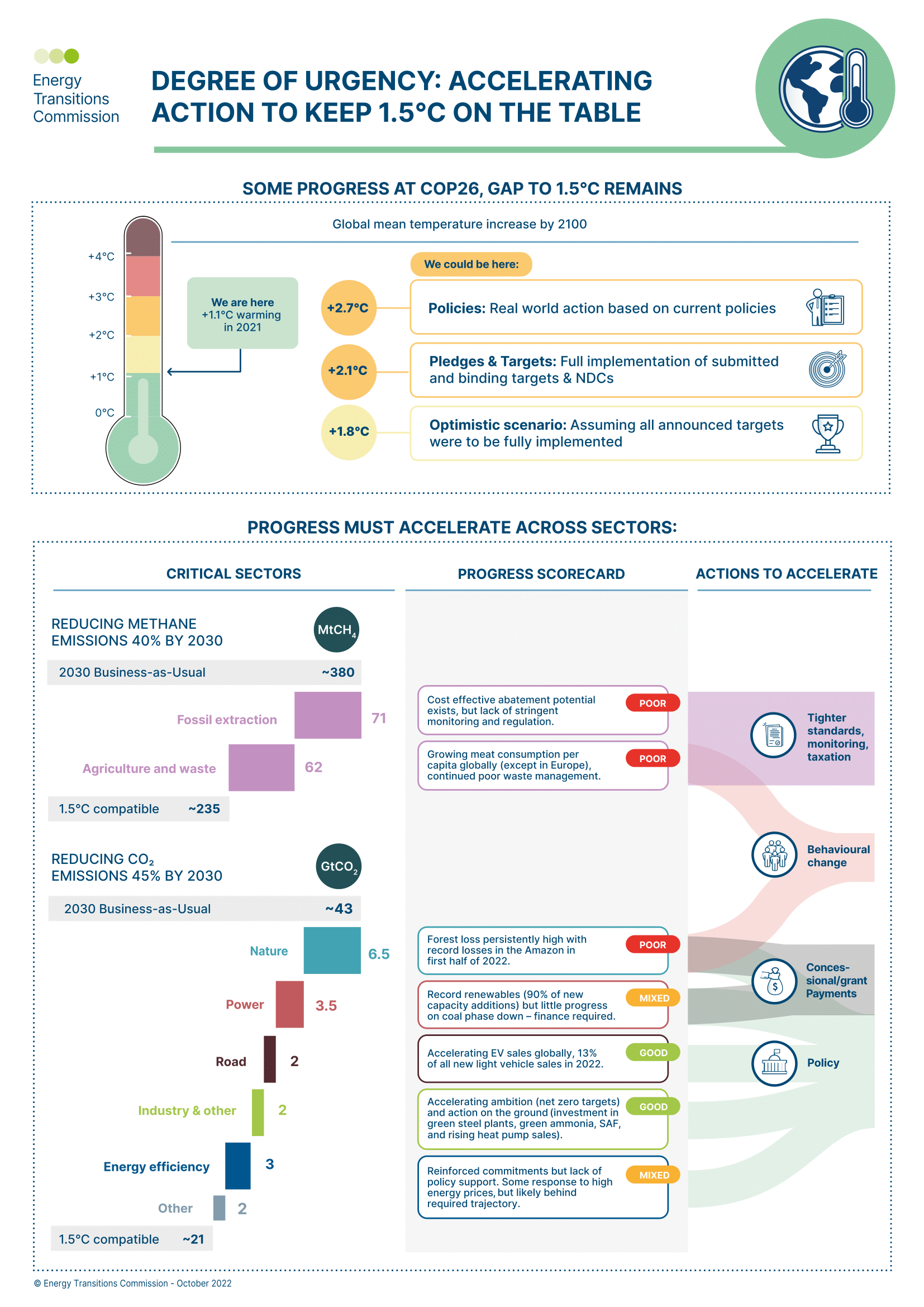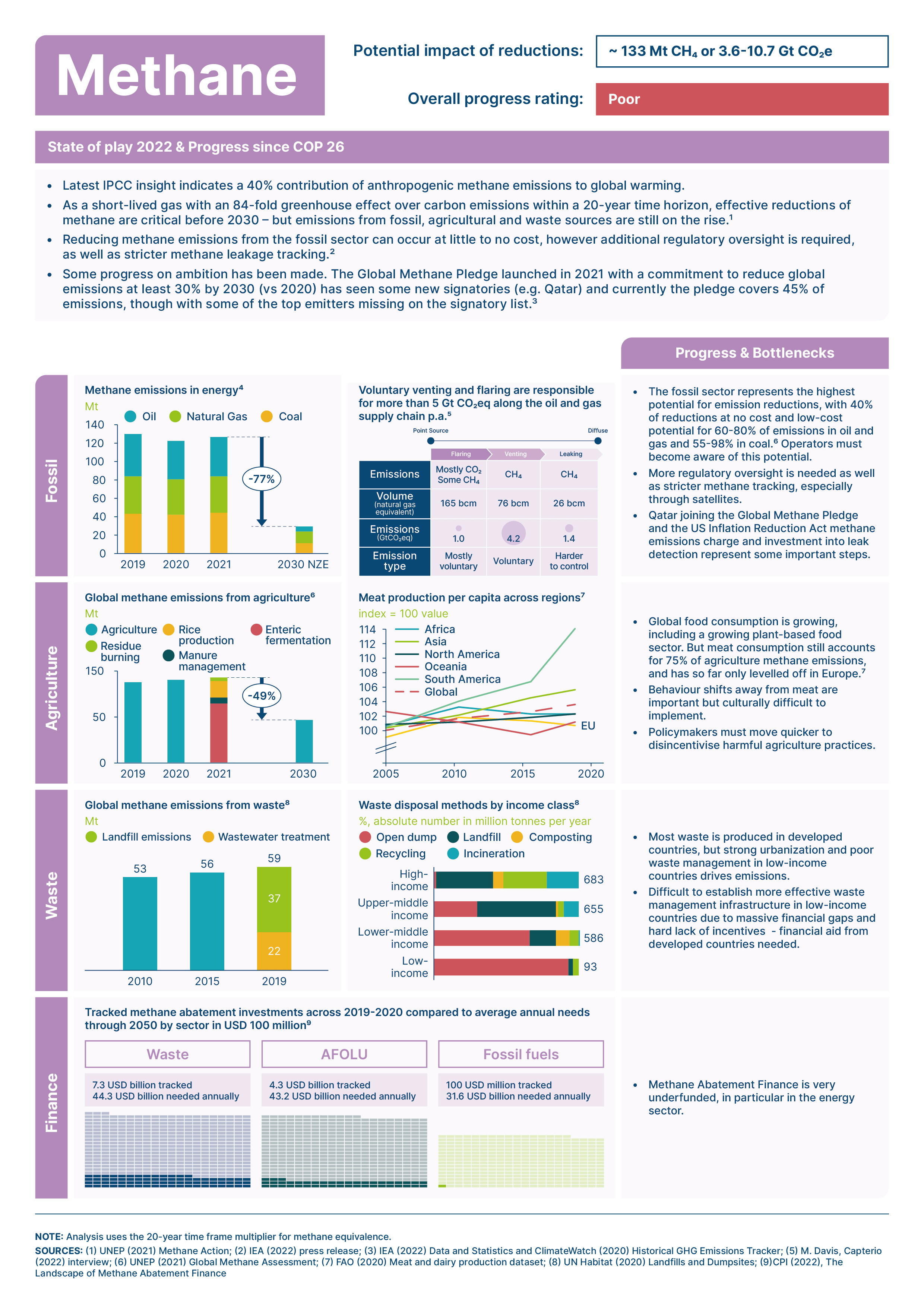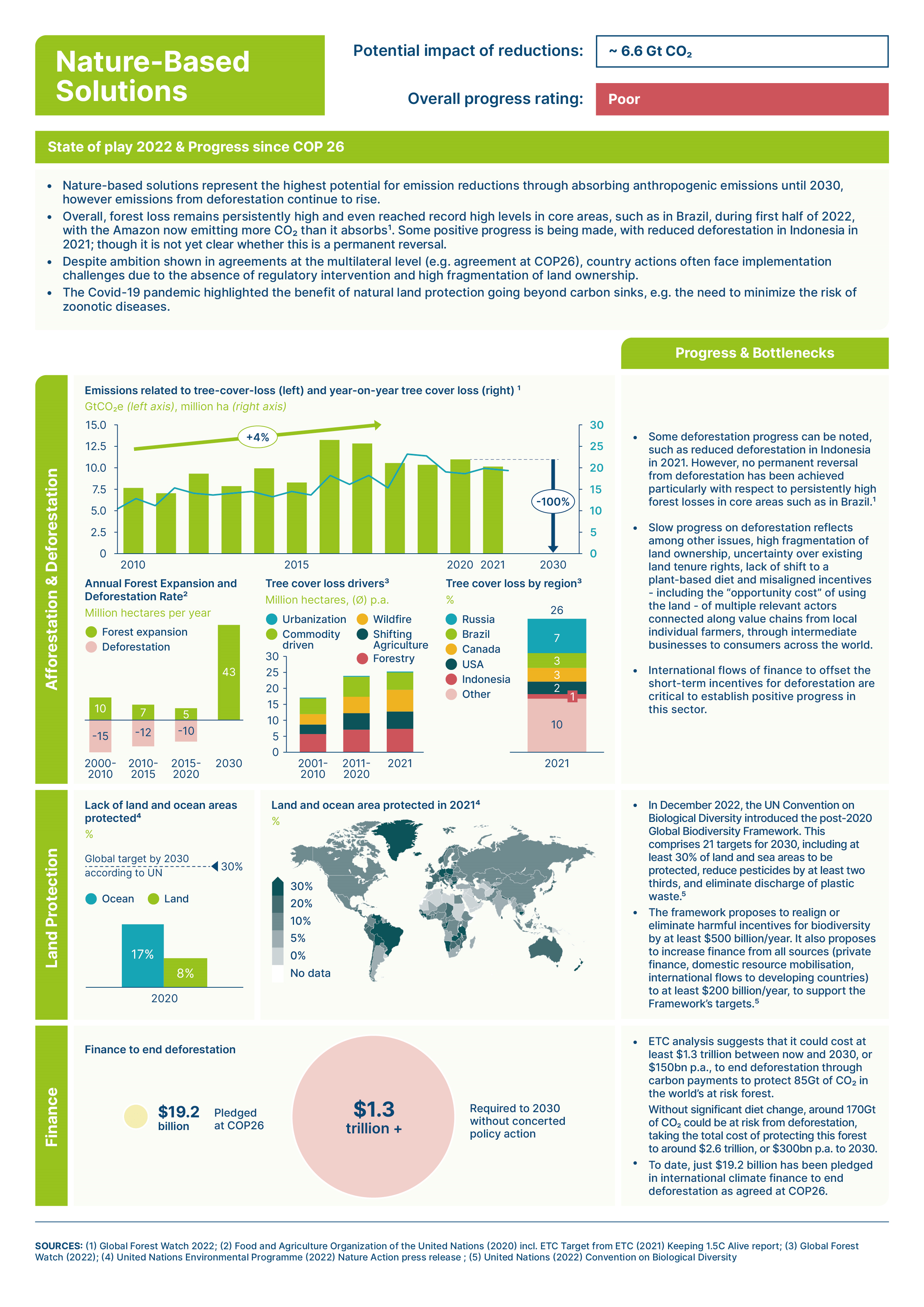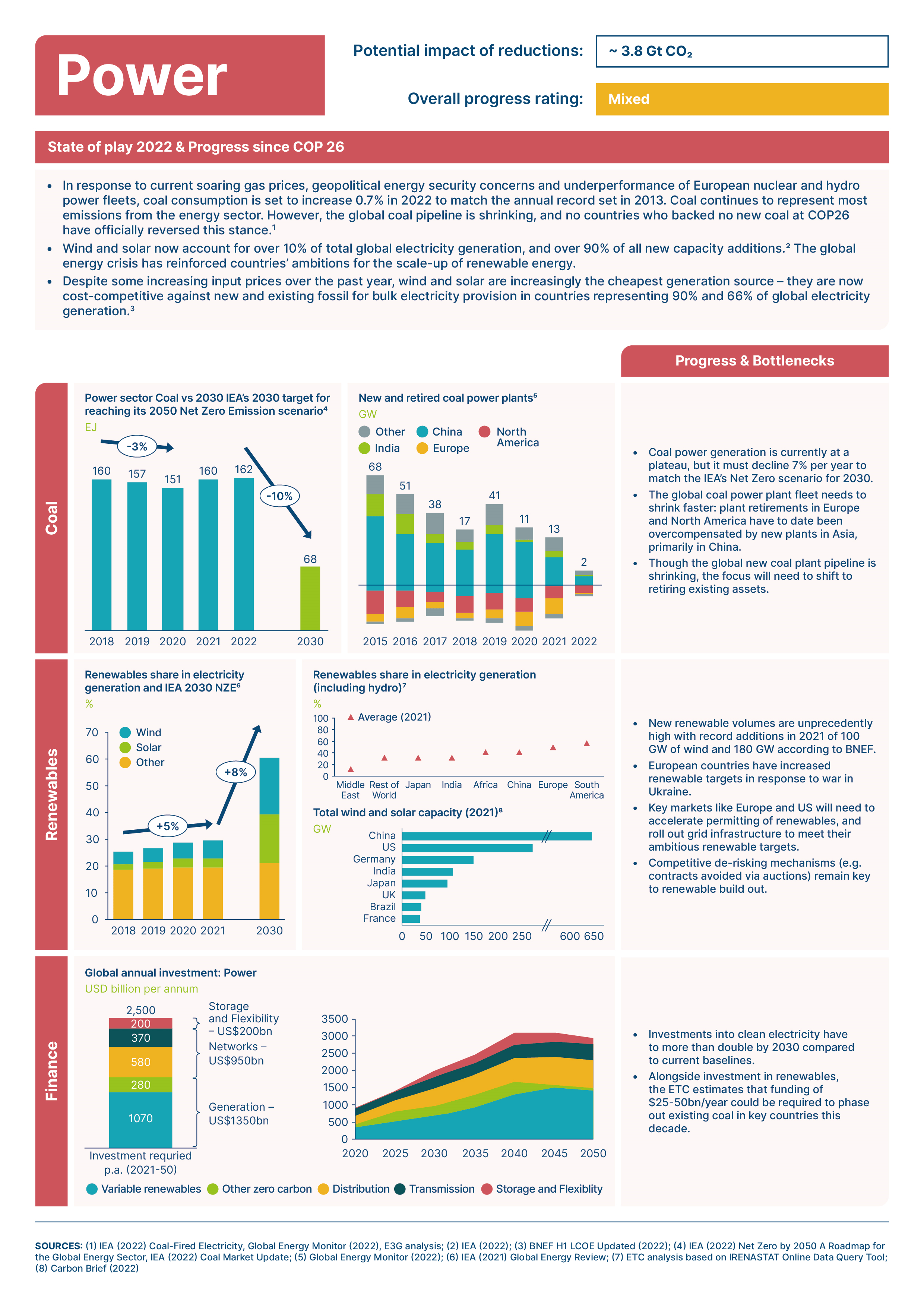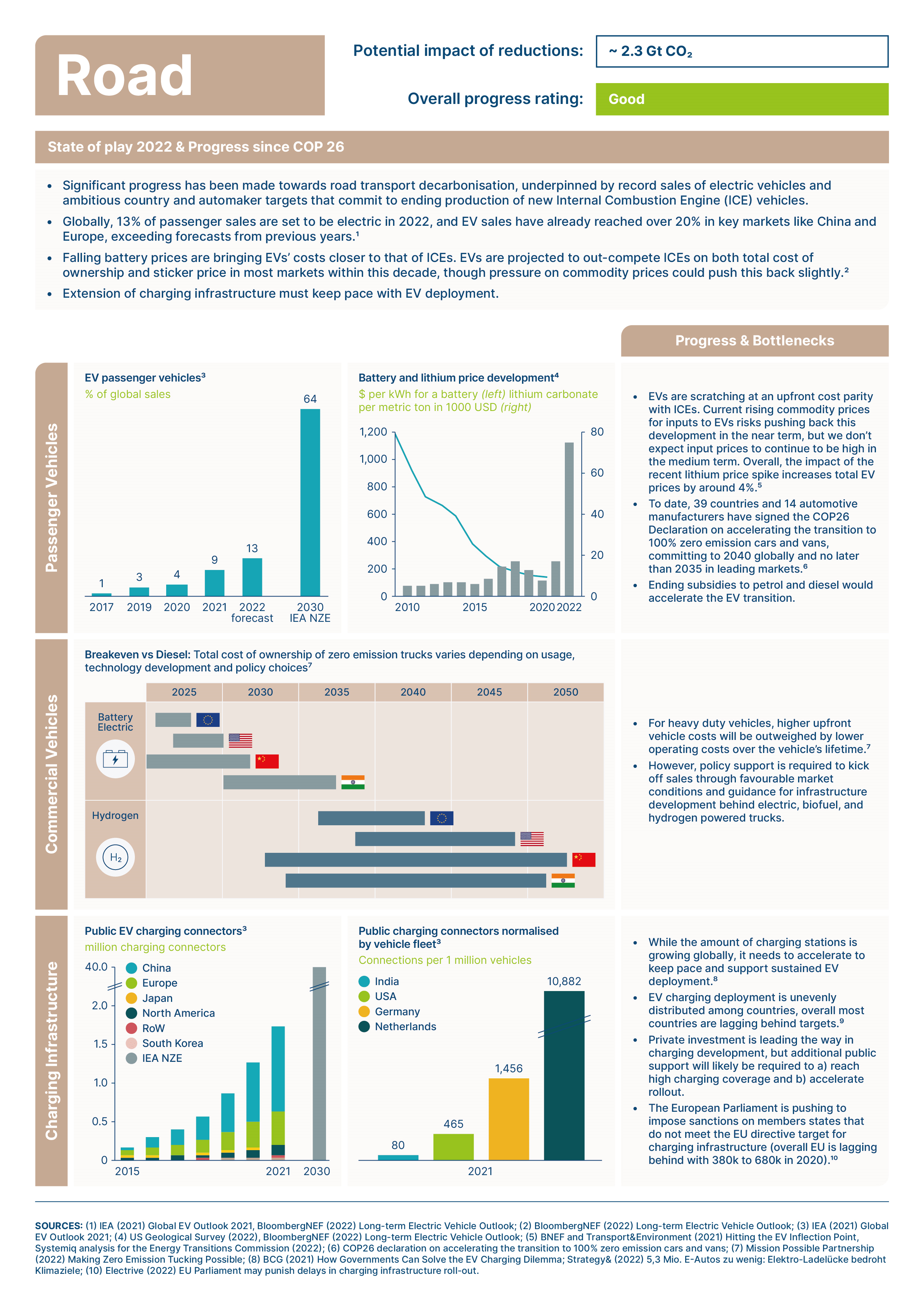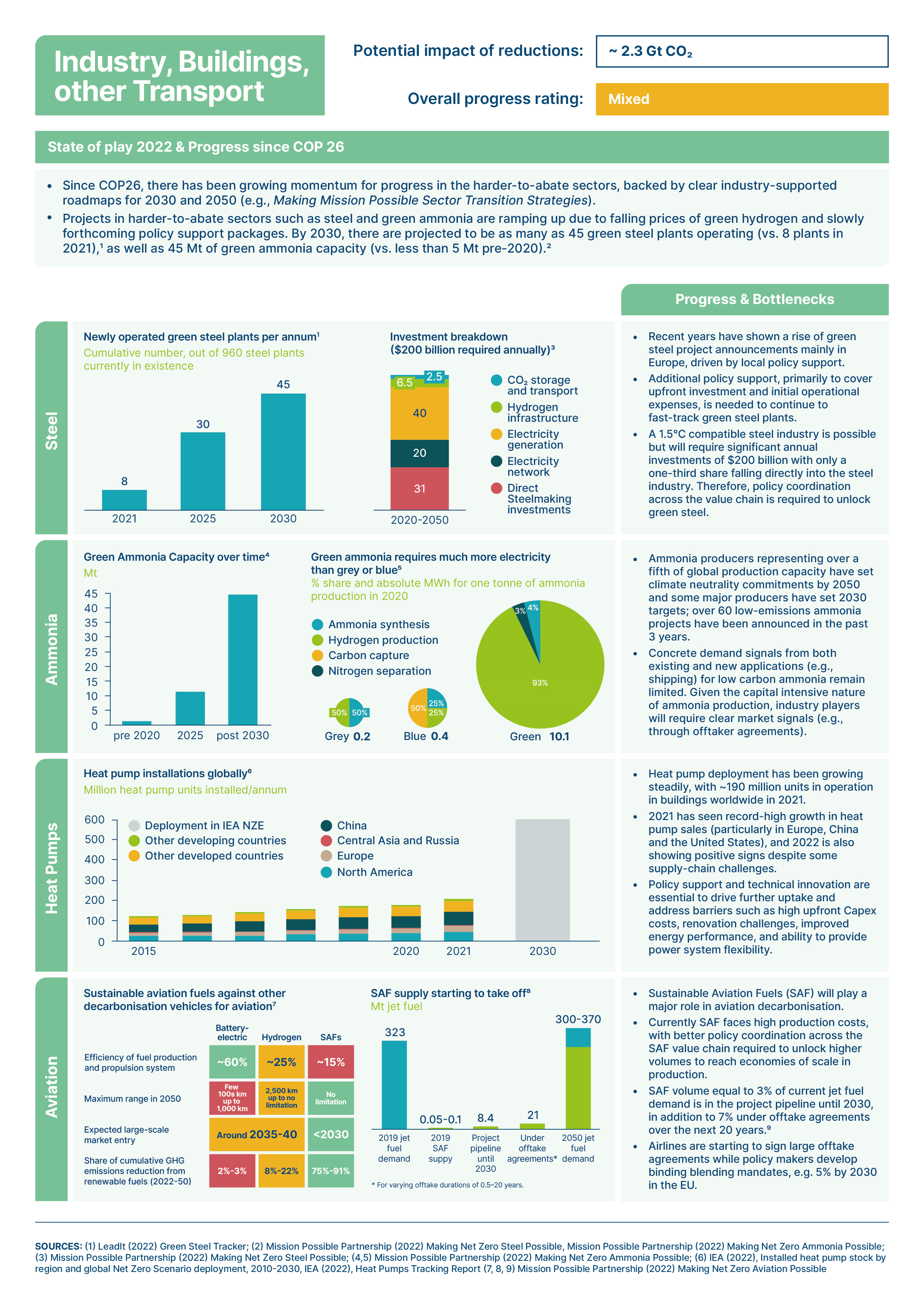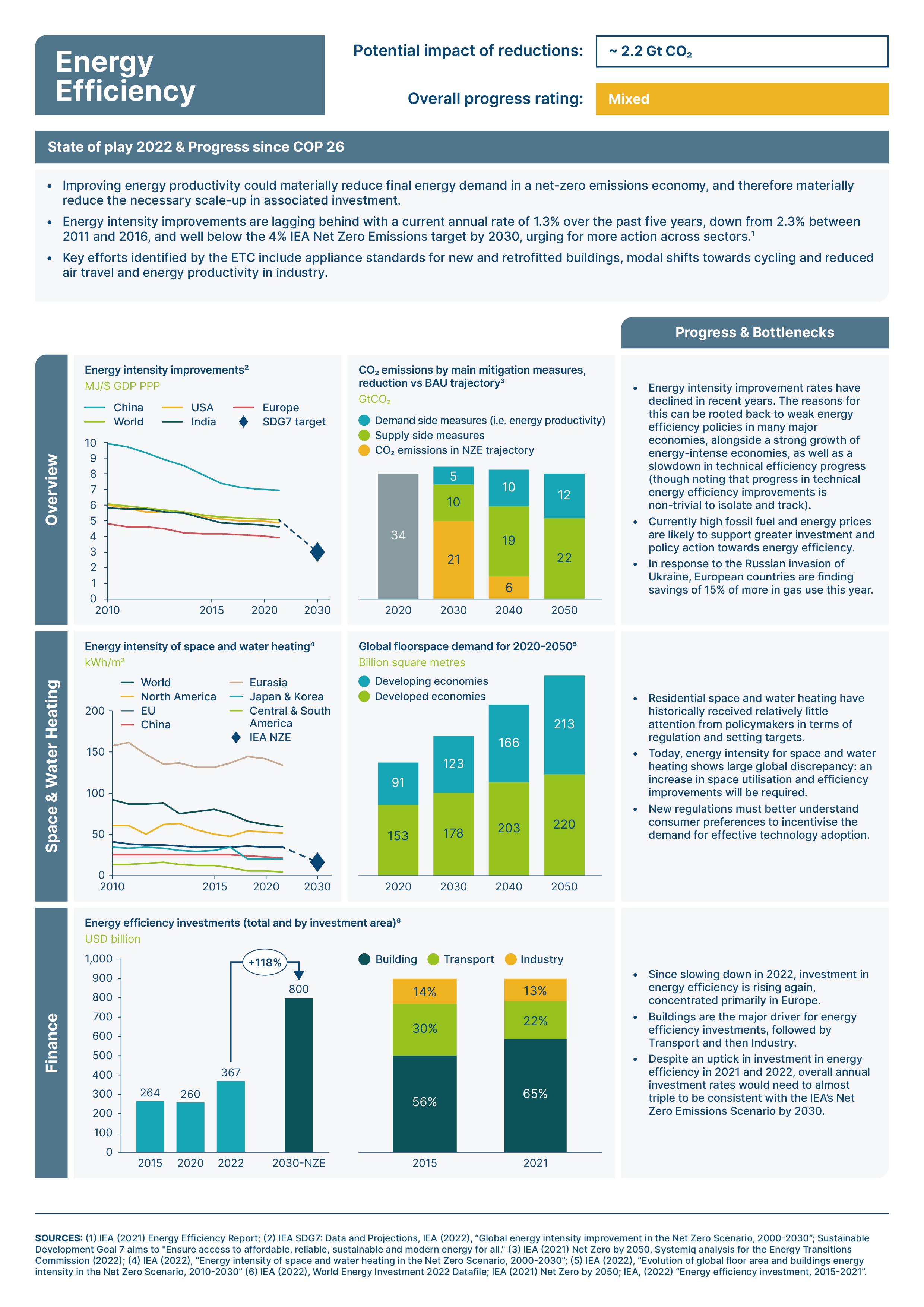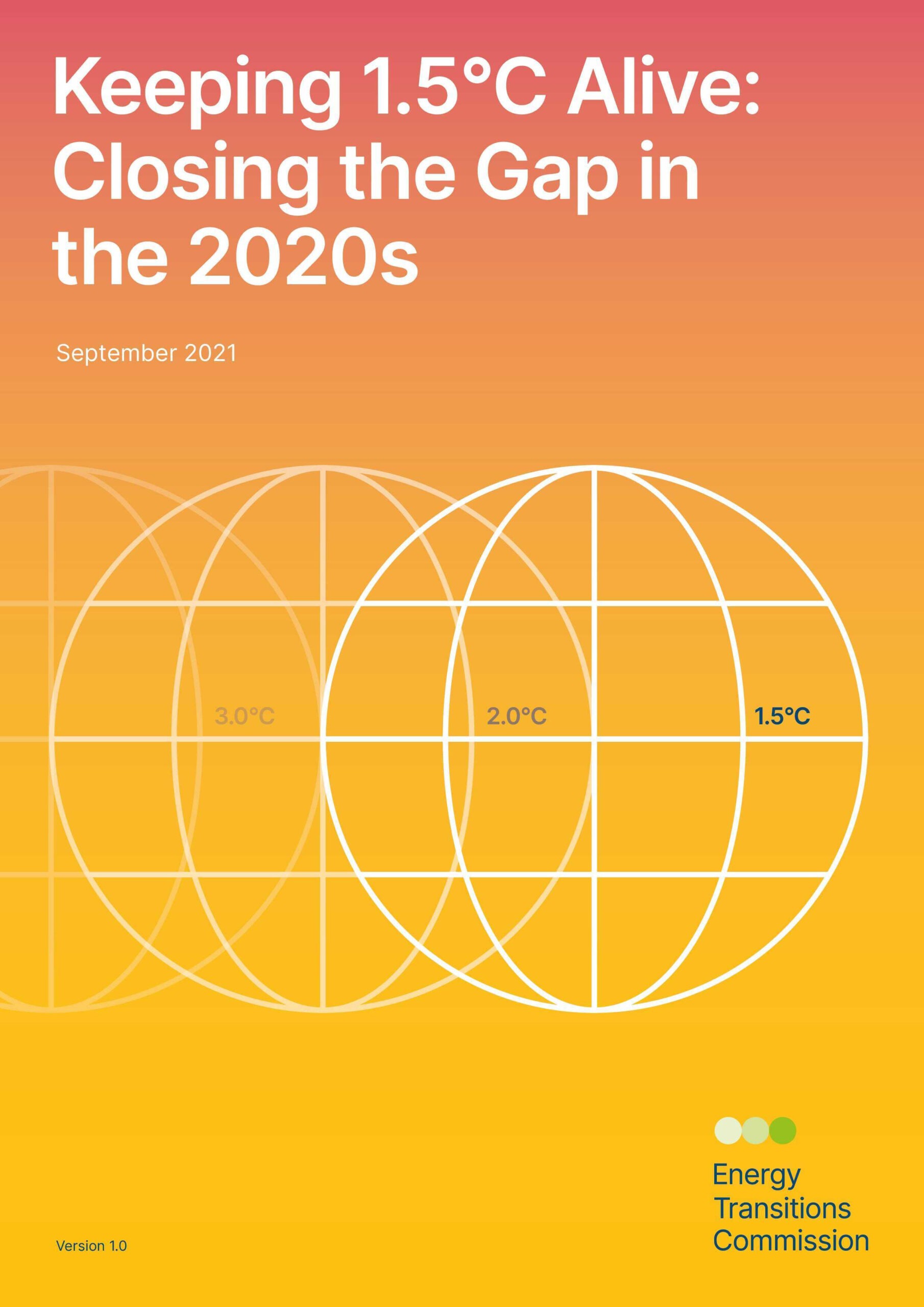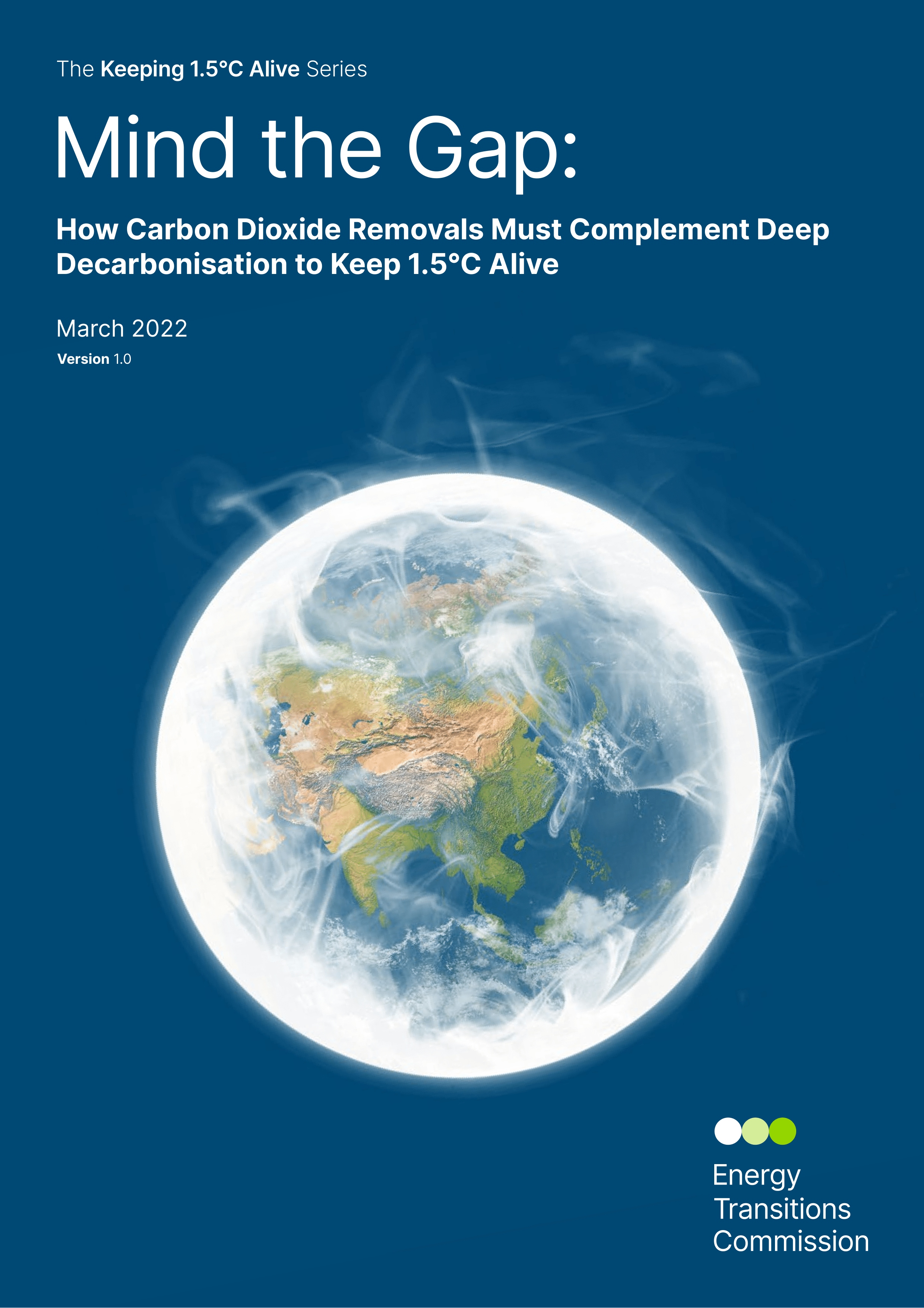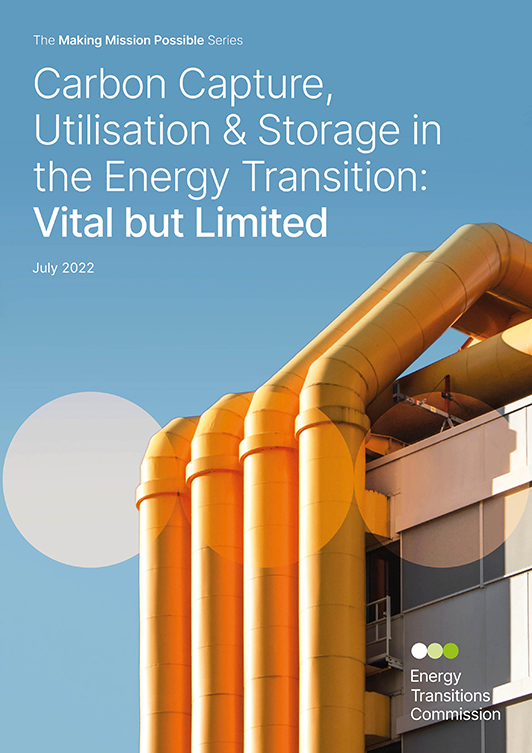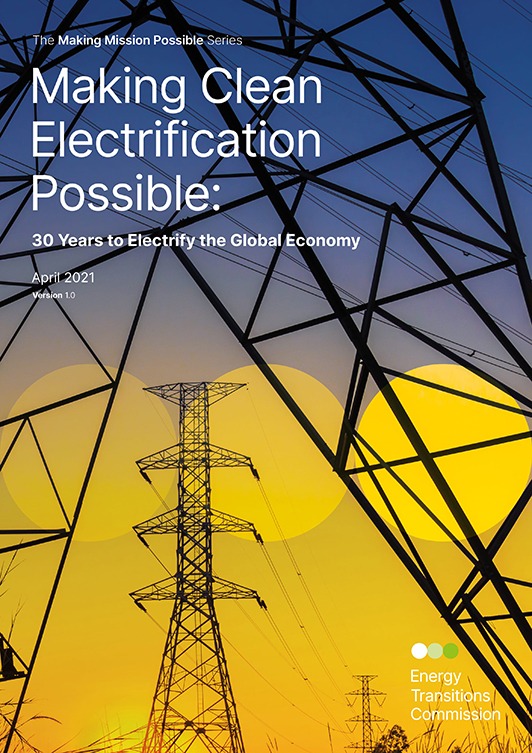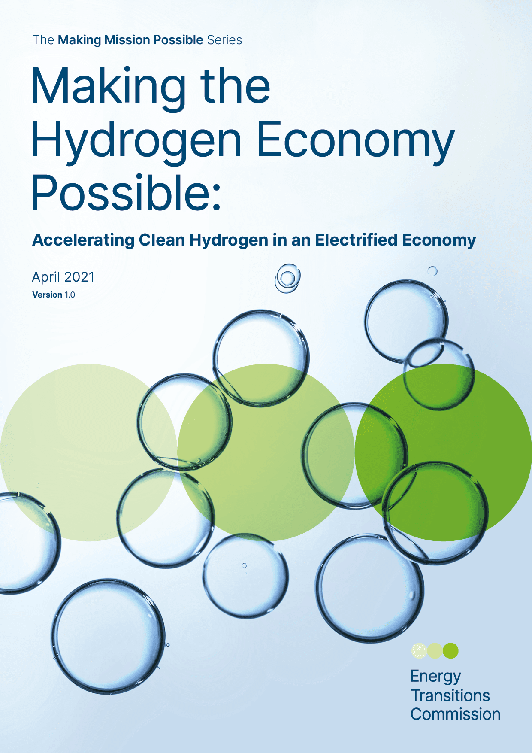Degree of Urgency: Accelerating Actions to Keep 1.5°C on the Table
November 2022
The latest report by the Energy Transitions Commission (ETC), Degree of Urgency: Accelerating Action to Keep 1.5°C on the Table, assesses progress since COP26 and outlines the priority areas for accelerated action at, and beyond, COP27.
Despite positive progress at COP26, current country pledges and commitments, even if fully implemented, still do not put the world on trajectory to limit global warming to 1.5°C. If the world is to have even a 50% chance of meeting that objective, COP27 must act as a catalyst to turn broad national commitments into specific actions and pave the way to more forceful measures to phase out coal and end deforestation.
Some voices are challenging whether a 1.5°C trajectory is still feasible. However, each 0.1°C rise above 1.5°C will have hugely significant climate change impacts. The world must continue to aim for this target, and to ensure that any overshoot of it is as low as possible. Both full implementation of COP26 commitments and further progress at COP27 are therefore essential if the world is to have a chance of limiting global warming to 1.5°C.
Against this backdrop the ETC’s new report Degree of Urgency: Accelerating Action to Keep 1.5°C on the Table highlights three priority areas for accelerated progress:
- Closing the ‘ambition gap’ via more ambitious country targets, with strengthened NDCs (Nationally Determined Contributions) which reflect both country specific actions and the potential impact of sectoral commitments agreed at Glasgow and subsequently.
- Closing the ‘implementation gap’ via targeted policies and company actions to drive further real-world progress across six critical sectors (methane, deforestation, power, road transport, heavy industry, and energy efficiency).
- Closing the ‘financing gap’ in particular to support middle and low-income countries to peak and then reduce emissions as soon as possible; in total at least $300 billion per annum could be required to support early coal phase-out, and end deforestation, and carbon dioxide removals in a scenario where sufficient action from policy and industry isn’t taken. This funding should come from corporates in voluntary carbon markets, philanthropic capital, hybrid payment and investment instruments, and intergovernmental transfers of climate-related funding from developed to developing countries.
Download the report
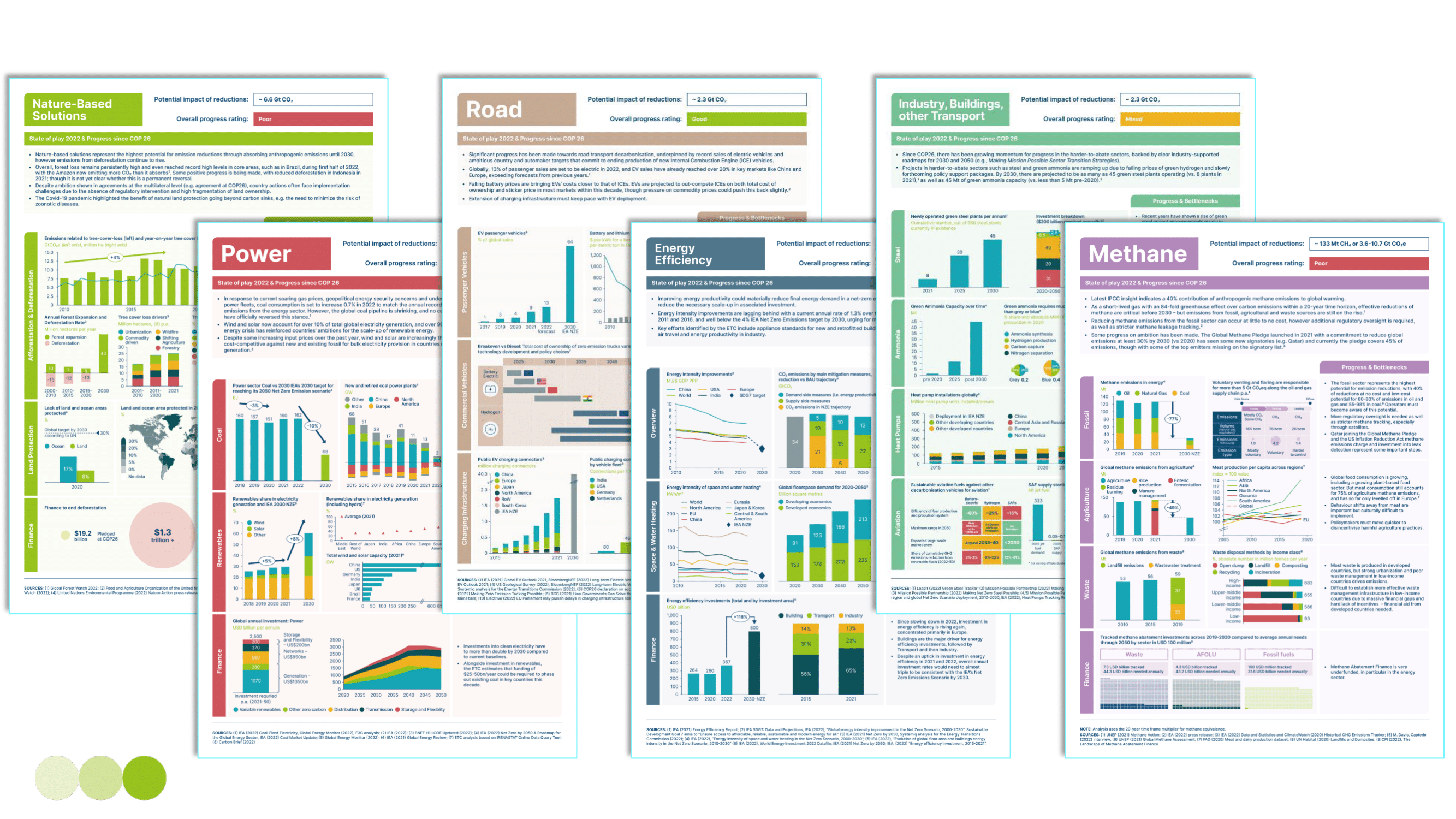
Progress Scorecards:


